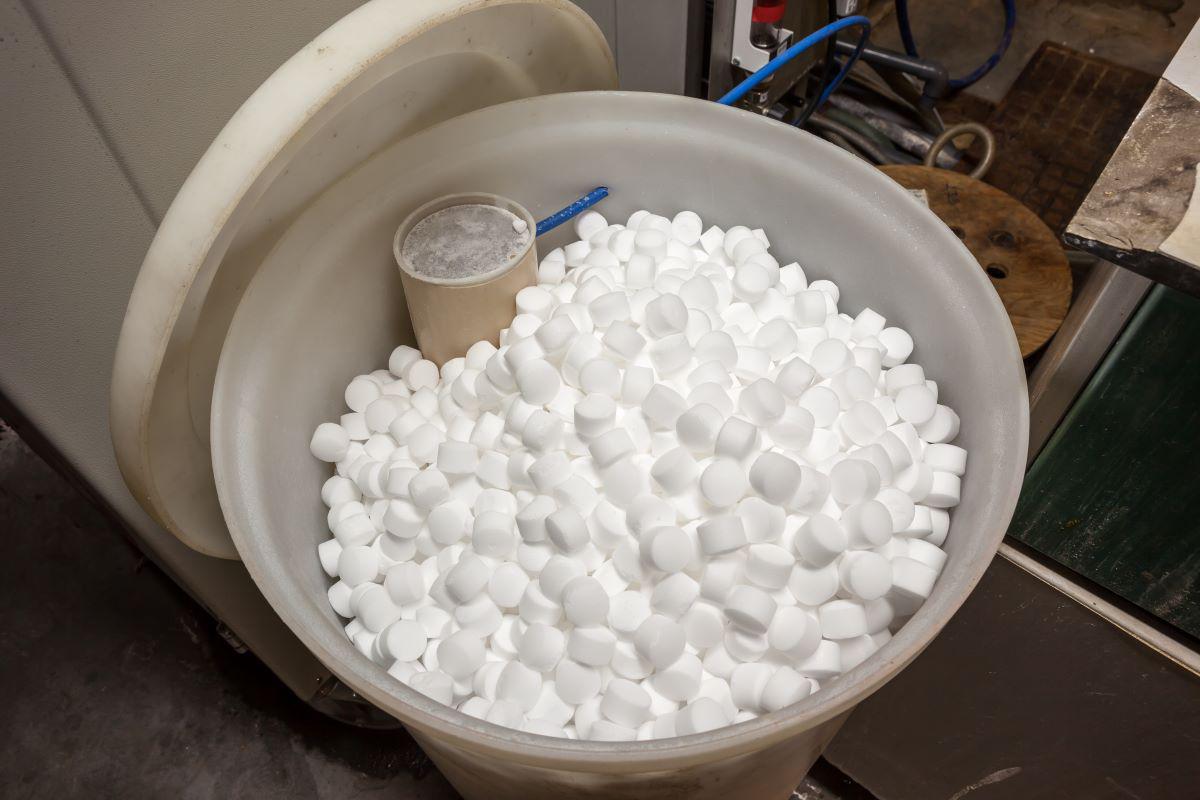
Hard water is a problem that many homes in Port St. Lucie, FL, face. Fortunately, you can resolve this issue by installing a water softener in your home. However, if you've never had hard water before, you may not even recognize the problem. To help with that, our experts here at Benjamin Franklin Plumbing® have put together a primer on hard water. We'll discuss what it is, its effects, and how water softeners address the problem.
What Is Hard Water?
Hard water refers to water with high levels of dissolved mineral content, primarily calcium and magnesium. These minerals dissolve into aquifers as water passes through limestone, chalk, or gypsum. As a result, virtually any area that relies on groundwater will have issues with water hardness, although the severity will vary depending on the mineral levels.
Water quality experts measure hardness in grains per gallon (GPG). On this scale:
- 0–3.5 GPG is considered soft
- 3.5–7 GPG is moderately hard
- 7–10.5 GPG is hard
- Over 10.5 GPG is very hard
In Port St. Lucie, the average water hardness is around 12 GPG, which falls in the “very hard” range. The exact level in your home may be slightly higher or lower. A professional water test can give you an exact measurement.
Signs You Have a Hard Water Problem
Hard water can affect your plumbing, appliances, and even your skin and hair. Some people dismiss the signs as normal, but they’re actually clear indicators you could benefit from a water softener.
Dry Skin and Brittle Hair
Minerals in hard water can strip your skin and hair of natural oils, leaving them dry, itchy, or more prone to irritation. Hair may lose its shine, feel rough, and break more easily.
White Chalky Buildup
One of the most common signs of hard water is a chalky white scale on faucets, showerheads, and sinks. Beyond appearance, scale buildup inside your water heater reduces efficiency, decreases capacity, and shortens the unit’s lifespan. Tankless water heaters can also suffer reduced flow rates from scale buildup. Over time, your plumbing lines can narrow, leading to leaks or premature pipe replacement.
Dingy or Faded Laundry
If your clothes and towels never seem fully clean, the minerals in hard water may be interfering with your detergent’s effectiveness. Soap residue may stay trapped in fabrics, leaving towels stiff and colors looking faded.
Cloudy Glassware
Hard water can leave cloudy spots or streaks on glasses and dishes. The same effect can appear on shower doors and bathroom mirrors as water droplets dry and leave mineral deposits behind.
How Water Softeners Treat Hard Water
A water softener is designed to remove calcium and magnesium before water flows through your home’s plumbing. It does this using a process called ion exchange. Inside the softener’s treatment tank are thousands of resin beads with a negative charge. These beads attract positively charged mineral ions from the water. During normal operation, calcium and magnesium stick to the beads while harmless sodium (or potassium) ions are released into the water.
Over time, the beads become saturated with minerals and need to be recharged. That’s where the regeneration cycle comes in:
- A brine solution from the softener’s brine tank is flushed through the resin.
- The sodium (or potassium) ions in the brine replace the calcium and magnesium on the beads.
- The mineral-rich brine is then drained away, leaving the beads ready to soften water again.
But What About the Sodium?
Water softeners do add a small amount of sodium to your water, but not enough to noticeably change the taste for most people. As a rule of thumb, you can estimate the added sodium by multiplying your hardness level in GPG by about 8–12 mg per liter. If someone in your household is on a low-sodium diet, you can opt for potassium chloride instead of standard salt. It works the same way but doesn’t add sodium, though it does cost more.
Your Local Water Softener Experts
If you believe your Port St. Lucie home could benefit from a water treatment system, count on Benjamin Franklin Plumbing® to install it. We’re a locally owned and operated business catering to the plumbing needs of local residents. We take pride in offering competitive pricing and exceptional workmanship. And our motto of "If there's any delay, it's you we pay!®" means we won’t waste your time. If we’re ever late for an appointment, we’ll pay you $5 for every minute you wait (up to $300). Plus, with our 100% satisfaction guarantee, you can feel confident knowing your home’s water quality is in good hands. Contact Benjamin Franklin Plumbing® today to schedule your water quality test and see how a water softener can protect your home and improve your everyday life.

 Your Privacy Choices
Your Privacy Choices